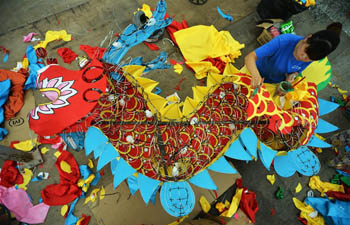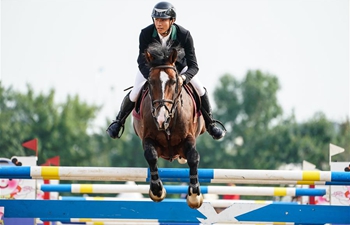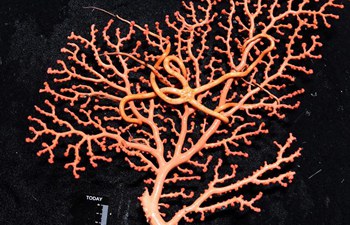JOHANNESBURG, Aug. 31 (Xinhua) -- South African Department of Agriculture, Forestry and Fisheries (DAFF) said Wednesday that it is contemplating the option of vaccination to stop the spread of avian flu.
The latest province to be hard hit by a highly contagious strain of bird flu is the Western Cape. The country has registered 16 outbreaks since two occurred in Mpumalanga and Gauteng in June.
"Approximately 60,000 birds have been culled on the farm," Ziyanda Majokweni, director of Poultry Disease Management Agency at the South African Poultry Association, said Wednesday at a media briefing in Johannesburg.
She added that the Highly Pathogenic Avian Influenza (HPAI) virus was detected on a commercial layer poultry farm on Aug. 17.
DAFF said the department was considering vaccinating most of the affected areas.
"It is a decision (vaccination) that should be based on scientific research for the long-term benefit of the sector and the country. But we are considering it, as the impact is wide," said Senzeni Zokwana, DAFF minister.
A final decision about vaccination will be made available at the end of next month, the minister said.
Meanwhile, DAFF has adopted stringent measures to halt the spread of bird flu from the affected areas, including placing farms under quarantine, destroying the eggs and depopulating the affected sites.
In South Africa, outbreaks of the virus have been reported in various parts of the country. Ten of the outbreaks were in the area of commercial chickens, three in ostrich, three in backyard chickens and eight in wild birds and pet birds.
According to the World Health Organization, no human cases have been reported as caused by bird flu.
"The World Organization for Animal Health and World Health Organization have both confirmed that the specific strain does not affect human beings," Zokwana said.
In June, DAFF suspended the sale of live chickens in the country following the outbreak of the highly pathogenic strain.

















